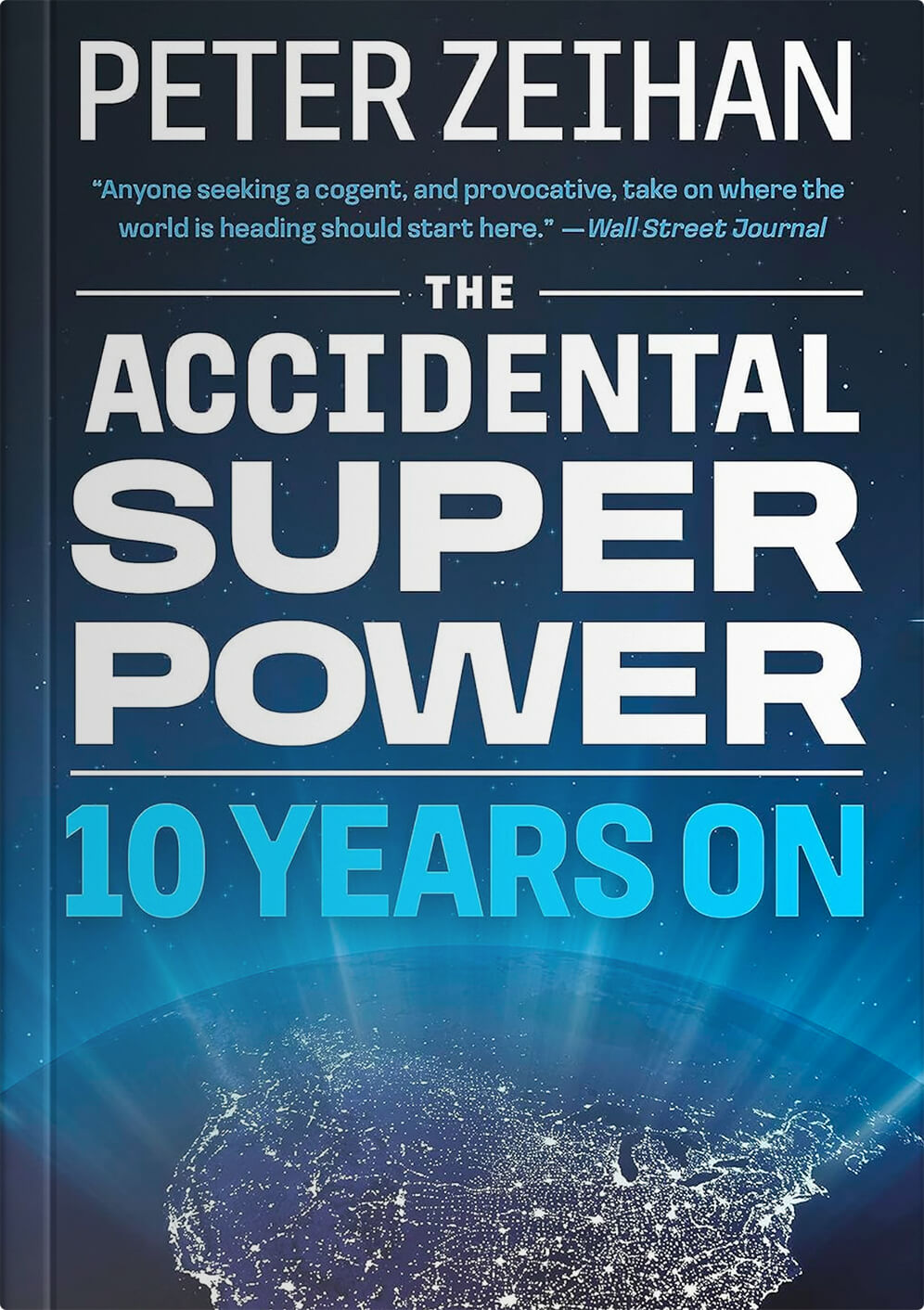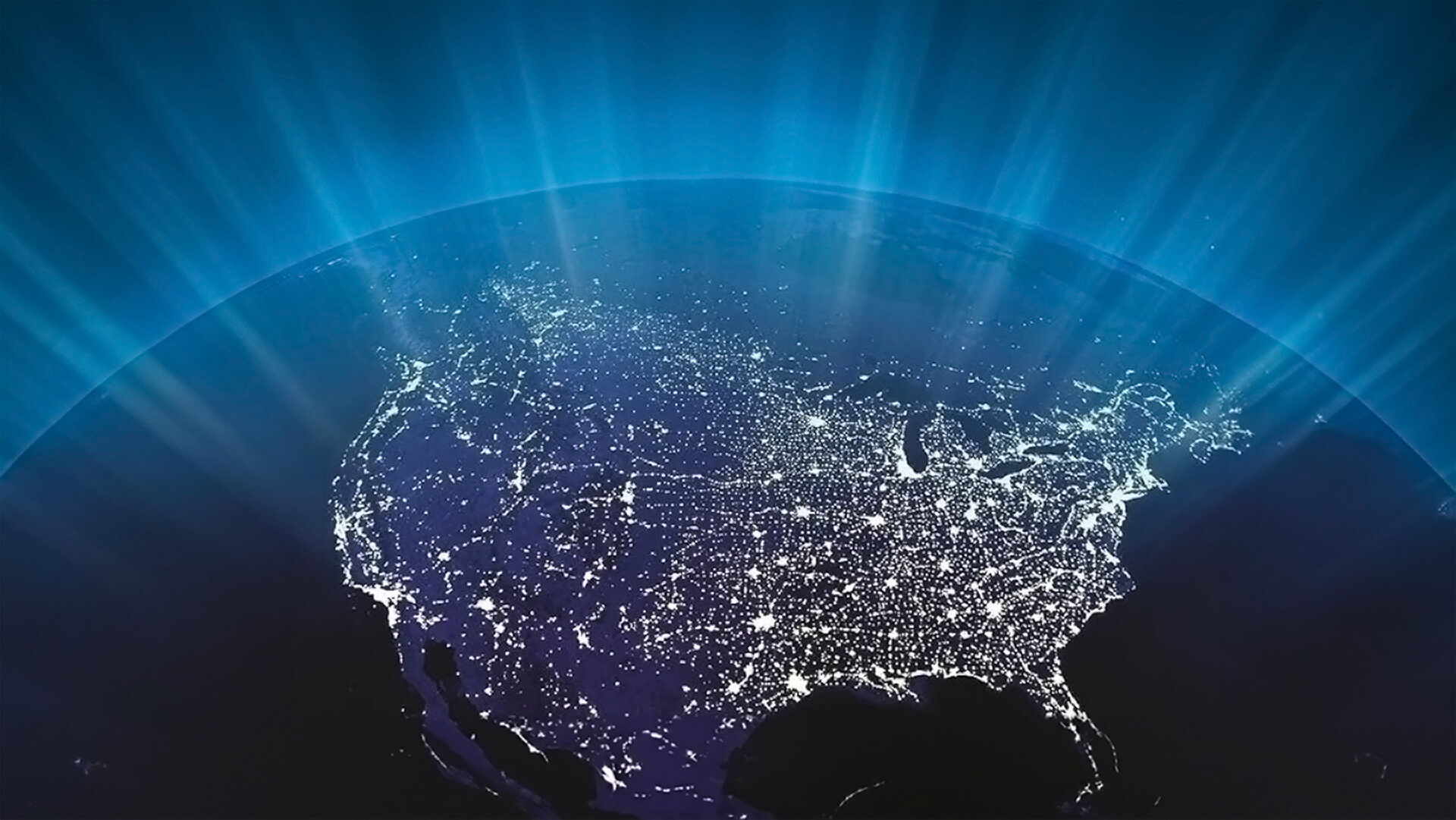I’m excited to announce the release of my new “10 Years On” edition of The Accidental Superpower. All the original eye-popping assessments of American power and deglobalization, plus a bevy of new text to bring you up to speed on the insanity of the decade since its initial release.
You can pre-order now at the link below!

Near the end of the Second World War, the United States made a bold strategic gambit that rewired the international system. Empires were abolished and replaced by a global arrangement enforced by the U.S. Navy. With all the world’s oceans safe for the first time in history, markets and resources were made available for everyone. Enemies became partners.
We think of this system as normal – it is not. We live in an artificial world on borrowed time.
In The Accidental Superpower, international strategist Peter Zeihan examines how the hard rules of geography are eroding the American commitment to free trade; how much of the planet is aging into a mass retirement that will enervate markets and capital supplies; and how, against all odds, it is the ever-ravenous American economy that – alone among the developed nations – is rapidly approaching energy independence. Combined, these factors are doing nothing less than overturning the global system and ushering in a new (dis)order.
For most, that is a disaster-in-waiting, but not for the Americans. The shale revolution allows Americans to sidestep an increasingly dangerous energy market. Only the United States boasts a youth population large enough to escape the sucking maw of global aging. Most important, geography will matter more than ever in a de-globalizing world, and America’s geography is simply sublime.
The key thing to note here is that the US never did this for themselves (sure, it came with some perks, but there was a greater purpose). At the end of World War II, the US knew something had to be done to stop the Soviets. So, the US created a global trade network to incentivize enough countries to “stand up” against them.
As the Cold War ended, the US ran a cost-benefit analysis, and something wasn’t checking out. The globalized system that once worked in favor of the US alliance network has started to shift in favor of countries outside of that group.
The US Navy still has a global presence, but it is nowhere near the scale it once was. As this presence continues to taper off, what will the repercussions be? The ultimate result will be the collapse of globalization, but the path there is undecided.
If there were a perfectly ironic ending to the globalized world, it would have to be the Russians causing the total collapse of supply chains and bringing this globalization endeavor full circle.
Here at Zeihan On Geopolitics we select a single charity to sponsor. We have two criteria:
First, we look across the world and use our skill sets to identify where the needs are most acute. Second, we look for an institution with preexisting networks for both materials gathering and aid distribution. That way we know every cent of our donation is not simply going directly to where help is needed most, but our donations serve as a force multiplier for a system already in existence. Then we give what we can.
Today, our chosen charity is a group called Medshare, which provides emergency medical services to communities in need, with a very heavy emphasis on locations facing acute crises. Medshare operates right in the thick of it. Until future notice, every cent we earn from every book we sell in every format through every retailer is going to Medshare’s Ukraine fund.
And then there’s you.
Our newsletters and videologues are not only free, they will always be free. We also will never share your contact information with anyone. All we ask is that if you find one of our releases in any way useful, that you make a donation to Medshare. Over one third of Ukraine’s pre-war population has either been forced from their homes, kidnapped and shipped to Russia, or is trying to survive in occupied lands. This is our way to help who we can. Please, join us.






